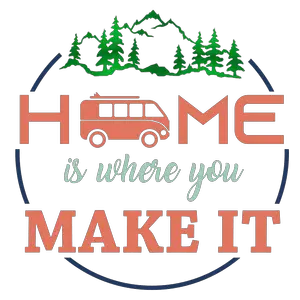Hey! This site is reader-supported and we earn commissions if you purchase products from retailers after clicking on a link from our site.
Hard water is sometimes safe for humans to drink, but it can cause damage to pipes in your RV and occassionally contain minerals you don’t want to consume. You can’t always control the type of water going into your RV, but you can use a water softener to protect your pipes and your passengers. A water softener takes hard water and softens it by removing calcium, magnesium, and more that results in soft water that is safer to consume.
The best place to install a water softener is between the intake valve and the rest of your water system. This stops hard water from damaging your pipes as it travels. Here are the best RV water softeners currently on the market, as well as some factors to consider when making your purchasing decisions.
For water softening, a grain is 1/7000 of a pound of calcium and magnesium, and this refers to how much of those minerals a softener can remove. For example, a system that filters 100 grains per gallon (assuming the water is hard enough to require that) and has a capacity of 20,000 grains can filter 200 gallons of water before it needs to regenerate.
Read your user manual carefully to determine the best way to regenerate your system as well. Alright, let’s get into our top picks!
Compare: The Best Water Softeners For Your RV
| Best RV Water Softeners | Category |
| Whirlpool WHES30E 30,000 Grain Softener | Best Water Softener |
| Luxury Shower Filter Water Purifier | Best In-Head Softener |
| Tier1 Everyday Series 48,000 Grain High Efficiency Digital Water Softener | Best for Large RVs |
| Premium Dual RV/Marine Water Softener Regeneration Kit | Best for Small RVs |
| On The Go OTG4-DBLSOFT-Portable 16,000 Grain | Best Portable Water Softener |
| Hard Water Bullet Portable RV Water Softener | Best for Hose Connection |
Reviews of Our Favorite Water Softeners
Let’s take a deeper look at all the water softeners that emerged as the best on the market from our research.
Best Water Softener
Whirlpool WHES30E 30,000 Grain Softener
Whirlpool’s WHES30E is one of the most effective water softeners currently on the market. It’s also one of the most straightforward systems for RVs, though you’ll need to find a good place to put it.
The thing I like most about this product is that it automatically calculates how much salt and water it actually needs to regenerate, which drastically reduces waste and helps you save salt and water over time. A low salt indicator lets you know when you need to add more salt, and that’s a feature that far more softeners should have.
This water softener also removes clear water iron (up to 8 parts per million), which is useful when interacting with some water supplies. Furthermore, this system reduces calcium, magnesium, and manganese that may be present in water supplies.
If there’s one major drawback here, it’s the fact that it only removes 95 grains of hardness per gallon. That’s not a bad level, but there are better systems on the market, so it’s not quite as good as it could be.
The Fine Print:
- Material: Unlisted
- Installation: Pipes
- Weight: 95 lbs
- Softening Method: Brine
- Electronic?: Yes
Pros:
- Ideal for up to four users at a time
- Works with the main water supply of an RV, including lines for washers
- Intelligent regeneration avoids wasting table salt and water
- Whirlpool sells a cleaner (available separately) specifically for this system
- 10-year limited warranty on the tank
- Comes with installation kit and bypass valve
Cons:
- The warranty isn’t quite as long as it should be for a product in this price range
- Requires a consistent electrical power supply, which can be an issue without a generator
Best for Large RVs
Tier1 Everyday Series 48,000 Grain High Efficiency Digital Water Softener
I’m not sure that the word digital is the correct way to describe what’s simply a filter system with a readout, but I appreciate the fact that you can get additional information readouts rather than having to guess how it’s performing.
Each of these large water softeners includes a large, pre-filled mineral tank and numerous pipes and connectors to help them connect to your RV. Some tubing systems may require additional fittings, so be ready to order those if need be. This system can support up to 11.2 gallons per minute and with water temperatures of 40 to 120 degrees.
The part I really like about this system is its automatic regeneration, which you can set for times when you’re not using it. Regenerating this softener takes about two hours and dramatically extends its useful lifespan. With a 48,000 grain softening capacity, this softener is ideal for both large RVs and large families, and it’s easily one of my favorite options on this list.
The Fine Print:
- Material: Varies by section, including resin
- Installation: Pipes
- Weight: 141 lbs.
- Softening Method: Brine/Mineral Tank
- Electronic?: Yes
Pros:
- High-volume softening, suitable for multiple users at the same time
- Resin interior lasts 10-20 years
- Only requires the occasional refill of salt and other materials
- Has an automatic regenerator
Cons:
- Larger than most other water softeners
- Requires some electric connections
- Does not reduce iron or some other metals and minerals
Best for Small RVs
Premium Dual RV/Marine Water Softener Regeneration Kit
Okay, this product isn’t actually a water softener in the traditional sense. In fact, the previous item on this list is pretty good for smaller RVs, especially if you have a tall, narrow area to put it where it won’t be in the way.
This iFilters product is on my list because it’s small but useful, starting with a pre-filter that blocks a lot of contaminants that could otherwise degrade your primary softener. This isn’t necessary in all areas of the country, but smaller softeners go bad faster when there’s bad stuff in the water supply, so a product like this is incredibly useful.
This filter also works as a regeneration kit to thoroughly regenerate your system. Unlike drop-in regeneration, where it’s rarely as effective because the salt only reaches the top of the resin, this unit regenerates from the inside out. Just about any good water softener will work for a small RV, but it takes something special to add this much utility and usefulness.
The Fine Print:
- Material: Unlisted
- Installation: Pipes
- Weight:5 lbs
- Softening Method: Filter
- Electronic?: No
Pros:
- Filters out sediment and many minerals before they even reach your water softener
- Universal compatibility with resin-based water softening systems
- Can regenerate up to 16,000 grains per cycle
Cons:
- Not an independent water softener
- Capacity is a little small for most RV softeners
Best Portable Water Softener
On The Go OTG4-DBLSOFT-Portable 16,000 Grain
On The Go’s OTG-DBLSOFT-Portable is an outstanding portable water softener for small RVs and for taking out of your RV to use on camping trips. This unit is best for water that’s only a little hard. It only removes about ten grains of hardness per gallon, but that’s often enough to make water better and less corrosive.
Other useful features on this product include a compact design and the ability to support a high flow rate. This is particularly useful when you have an outside water source that you want to make use of. A travel-friendly cap and plug system make it easy to carry around without leaks. Regenerating takes about 30 minutes, which is quite fast for a water softening system.
This unit requires no special tools or electricity, and it’s possible to store it in a storage bay or other area while not in use. Most people won’t actually remove water softeners very often, though, so it’s okay to think of this as a small softening unit and use it as such.
The Fine Print:
- Material: Unlisted
- Installation: Pipes
- Weight: 32 lbs
- Softening Method: Resin
- Electronic?: No
Pros:
- High flow rate supports multiple users
- Capable of softening up to 1600 gallons at a time
- Small enough to fit almost anywhere, or be carried out of the RV
- It doesn’t require tools to install
Cons:
- It doesn’t soften water as much as some other products
- Most people don’t need portability, and fixed-in-place softeners are generally better
Best In-Head Softener
Luxury Shower Filter Water Purifier
I’ll be honest: I don’t like this product, at least not as a standalone water softener. The main point of using a water softener in an RV is to protect the delicate pipes inside it, so if you’re only softening the water at your shower head, you’re kind of missing the point. It’s not a bad supplementary system, but it’s a terrible first choice as a softener.
That said, sometimes softening water when it comes out of your pipes is the only option. If that’s true for you, this is actually a good choice thanks to ceramic balls that add Vitamin C and E to the water. Removing bad stuff is good, but adding in good stuff afterward is great. This purifier is also easy to install and requires no tools on most RV setups.
This purifier uses a cartridge-based system that typically lasts six months, although this can vary depending on use. Full-time RVers should get about this long from each unit. Consider buying a spare in case you need to exchange it on the road.
The Fine Print:
- Material: ABS
- Installation: Screw-In
- Weight:5 lbs.
- Softening Method: Cartridge purifier
- Electronic?: No
Pros:
- Easy to install
- Lasts for a long time
- Fits most standard shower arrays
- Tool-free installation
- Adds good chemicals into the water
Cons:
- Only softens at shower heads
- Cannot be rejuvenated
Best for Hose Connection
Hard Water Bullet Portable RV Water Softener
Many RV sites contain hard water in their existing plumbing and fixtures, which is a problem if you’re traveling around the country. For that matter, RV parks and similar areas often pump untreated well water that has other minerals and potential contaminants in it.
The Hard Water Bullet is a way to address some of these problems. Unlike most water softeners, this is a point-of-use system that you can put between your vehicle and an exterior hose. The main part of this softener is a special interior water filter that collects and stops minerals. All it needs is the occasional cleaning to keep working properly.
As a bonus, this softener does not inhibit water flow or water pressure. You should use it together with a pressure regulator to prevent damage from high-pressure exterior hoses, but it’s otherwise compatible with standard 3/4” connections.
The Fine Print:
- Material: Metal
- Installation: Hose
- Weight:1 oz.
- Softening Method: Catalytic
- Electronic?: No
Pros:
- Compatible with a huge variety of systems
- Does not require table salt or regenerating, just the occasional cleaning
- More affordable than most other softening systems
- It’s possible to chain these together for added effectiveness
Cons:
- May not be fully effective on especially hard water
- Cannot tell you when it needs to be cleaned
Honorable Mention
FlowPur RV-Pro 10000 Portable Softener
FlowPur RV water softeners are also a great option and come ready to install and use. This model removes calcium, iron, and magnesium from your water and prevents your appliances from getting hard water stains. You can check it out here.
Recap: The Best RV Water Softeners
- Whirlpool WHES30E 30,000 Grain Softener – Best Water Softener
- Luxury Shower Filter Water Purifier – Best In-Head Softener
- Tier1 Everyday Series 48,000 Grain High Efficiency Digital Water Softener – Best for Large RVs
- Premium Dual RV/Marine Water Softener Regeneration Kit – Best for Small RVs
- On The Go OTG4-DBLSOFT-Portable 16,000 Grain – Best Portable Water Softener
- Hard Water Bullet Portable RV Water Softener – Best for Hose Connection
Buying an RV Water Softener: What to Look For
The most important factors to consider when buying an RV water softener are the flow rate, softening capacity, price, and softening style – all resulting in better water quality.
Flow Rate
In order the find the right size water softener for your rig, you have to know its flow rate. Flow rate is measured in gallons per minute (GPM). Look at all the appliances you use and how much water is going to flow through them:
- Faucets: 2.5-3 GPM
- Toilets: 2.2-5 GPM
- Bathtubs: 4-8 GPM
- Showers: 2.5-5 GPM
- Dishwashers: 2-3 GPM
- Washing machines: 4-5 GPM
Softening Capacity
Inside water softeners, there are small plastic beads called ion exchange resin. These little beads basically act like a magnet for hard water minerals and pull them out of your water supply. Your softener’s capacity is measured by how much of that resin is inside the unit, which will need to be replaced and cleaned once the resin is covered in minerals.
Water Hardness Level
Make sure to consider the hardness of the water you’ll be softening (you can use test kits to measure hardness levels). The average is typically around 30-20 GPM, so if your water hardness levels are any higher than that, consider going with a heavier duty model.
Softening Style
Salt-based water softeners are by far the most popular systems. However, they require you to add more salt regularly, and they could be a problem for people who need low-sodium diets.
High-grain softeners are generally better for RV travel. You don’t always know where you’re going to drive to next, and if you forget to buy salt, a high-grain softener may continue functioning until the next time you can get to a store.
Non-salt softeners like the Hard Water Bullet described above are rarer and not always as effective, but they can work as a good alternative to traditional systems. I recommend researching the normal water hardness of any area you plan to travel to, then adding additional filters or non-salt softening systems as needed to protect your RV.
Maintenance
Some water softeners require you to change the salt pellets and clean the tank regularly. Make sure to look at how often you’ll need to do that when you’re comparing models. Maintenance costs can add up quick if your water softener needs a lot of upkeep.
Price
Of course, we want to make sure you’re getting a good deal. We got rid of a few products that we came across where the quality just didn’t match the price tag.
Frequently Asked Questions
Are Pellets Or Crystals Better For Water Softeners?
This depends. Crystals are better for lower water consumption or two part softeners, while pellets are better for high volume consumption. If you live out of your RV or use it regularly, pellets would be a better option for you. If you only use your RV occasionally then crystals will be better as they tend to store better than pellets do.
How Long Do Water Softeners Last?
If taken care of properly, a water softener can last you up to 20 years. This includes doing regular maintenance, and regenerating your water softener as needed. Higher use softeners might have a shorter lifespan, even a tankless water softener should last over 10 years.
How Often Should I Recharge My RV Water Softener?
If you are in your RV Regularly, every two to three days. This will provide the softest water and best results, as well as keep the resin bed active in the softener which will help it last longer. If you only use your RV occasionally, it is better to recharge it before you leave and then every couple of days as needed, as you most likely won’t experience a large shift in the quality of your water like someone who lives in their RV would.



